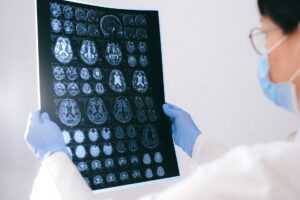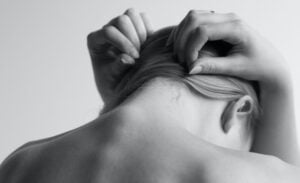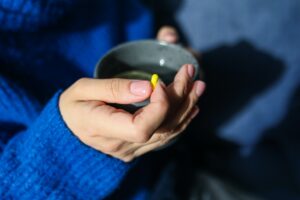Drug and Alcohol Rehab in Eastleigh
This article will discuss drug and alcohol rehab in Eastleigh. Eastleigh is a town in Hampshire, England. It is home to 130,000 people.
As data collected by National Statistics has found, in England, in 2021, there were estimated to be 275,896 adults that contacted drug and alcohol services.
Opiates account for the highest number of treatment entrants (140,863).
Alcohol was the second highest (76,740), then cannabis (27,304), and finally cocaine (19,740). [1]
There has also been an increase in treatment entrants suffering from addiction to prescription pills, such as benzodiazepines.
Please follow this link for more information about drug and alcohol statistics in England and Eastleigh.
In Hampshire, where Eastleigh is located, there is an estimated 3,434 adults with opiate and crack dependency and 11,248 adults with alcohol dependency. [1a]
You can read more about the disease of addiction here.
If you or someone you know are suffering from drug and/or alcohol dependency in Eastleigh, this article will help inform you as to what treatment is available and what to expect from drug and alcohol rehab.
Get the support you need to beat addiction at a rehab clinic in Eastleigh by calling our team today on 0800 140 4690
What is Alcohol Addiction?

If you are addicted to alcohol, this means that you have an Alcohol Use Disorder (AUD). AUD is defined with regards to someone that cannot stop drinking regardless of negative consequences, such as health, social, or occupational.
AUD is considered to be a brain disorder, and it covers a wide spectrum ranging from mild to severe. [2]
Mild AUD might include drinking more than recommended and alcohol consumption being a daily occurrence.
More severe AUD might include drinking continuously throughout the day, seven days a week. At this level, the person is likely dependent upon alcohol to function properly.
Other symptoms of AUD include:
- The inability to stop drinking
- Consuming alcohol even though you have work/social obligations
- Your day is centred around alcohol
- Drinking when it is unsafe to do so, such as when driving
- Your thoughts are constantly on alcohol
- Experiencing withdrawal when not drinking – headaches, tremors (shakes), flu-like symptoms
Get the help you need to beat addiction in Eastleigh by calling our team today on 0800 140 4690
What is Addiction Rehab in Eastleigh Like?

Professionally supported drug and alcohol rehab is one of the best ways to recover from addiction.
Rehab covers a wide range of treatments, such as residential rehab, inpatient and outpatient treatment, and recovery homes. [3]
The purpose of addiction rehab is to provide people suffering from dependency a place that can help them recover, heal, and hopefully lead a dependency-free life.
Services that rehabs offer can vary based on the treatment program, but all alcohol and drug addiction treatment programs aim to provide four key services: detox, therapy, relapse prevention, and aftercare.
These will be covered in more detail below, but, in essence, detox refers to the process of the body expelling a substance from its system.
In rehab, people will be medically supervised and provided with assistance as they experience withdrawal.
Therapy is aimed at uncovering the nature of the alcohol or drug addiction and providing people with the tools to help them obtain and maintain an addiction-free life.
Relapse prevention prepares people to leave rehab and helps reinforce the tools that they need to prevent them from falling back into old habits and behaviours.
Aftercare refers to post-rehab support – this might include continued therapy.
To discover for yourself what a rehab clinic in Eastleigh is like, call us on 0800 140 4690
Inpatient vs Outpatient Treatment in Eastleigh

Addiction is not considered a ‘choice’ or ‘moral failing’ on behalf of the addiction sufferer – so the focus of rehab is always on returning agency to the patient.
The two most common types of rehab are inpatient and outpatient. Both offer detox, therapy, relapse prevention, and aftercare.
However, inpatient treatment requires people to stay overnight at a facility for the duration of their treatment. As a result, people will receive 24/7 medical and emotional support.
Typically, inpatient treatment (or residential rehab) lasts between 28 days to 6 months.
Outpatient treatment, on the other hand, does not require an overnight stay. Instead, people will attend weekly appointments at a hospital, clinic, or doctor’s surgery (usually between 10 to 12 hours per week).
Outpatient treatment can last longer than inpatient treatment – sometimes up to a year. On average, however, it usually lasts between 3 to 6 months. [4]
For help choosing between inpatient and outpatient rehab centre in Eastleigh, talk to our experts today on 0800 140 4690
Holding an Intervention in Eastleigh

An intervention is when family/friends gather to convince a loved one to seek help for their substance use.
They are usually held when a loved one does not realise that their substance use has become an issue, is unwilling to seek help, and is having a negative impact on those around them.
An intervention can be difficult to get right. It is, therefore, recommended that people seek the advice of an expert – an interventionist, psychologist, or key worker, for example.
They will be able to help organise the intervention, act as a mediator, and provide useful guidance. [5]
There are some important things to consider when preparing to conduct an intervention, such as:
- Who is to be involved, and where it will take place
- What you want to say – focus on being positive and encouraging
- What treatment is available, and how it can be accessed
The CRAFT Method of Intervention

It is also worth exploring professionally developed methods, such as Community Reinforcement And Family Training (CRAFT).
CRAFT was developed with families in mind – particularly families with a loved one unwilling to get help.
Its main objectives include:
- Helping families develop an understanding of addiction and treatment options
- How to communicate with their loved ones and remain positive
- How to encourage their loved ones to make positive behaviour changes
- How to be a good listener
- Helping families support their loved ones through treatment
- Helping families stop enabling behaviour
Usually, CRAFT occurs over several months. Families will work alongside a professional, who will hold weekly training sessions with them and their loved ones.
To make sure that your loved one gets the help they need from a rehab clinic in Eastleigh, call us today on 0800 140 4690
What Treatment is Available in Eastleigh?

Experts have agreed that abstinence is far more effective than harm reduction or moderation management, so this is what rehab services will work towards.
Examples of free drug and alcohol treatment services in Eastleigh include Inclusion Recovery Hampshire (IRH) and Hampshire 24/7. [6]
IHR provides many services, including:
- Treatment support
- Holistic assessment interventions
- Psychosocial interventions
- Recovery planning
- Group work and support
- Help to access inpatient and residential services
- Relapse prevention
- Addiction counselling
These are only a few examples of what IHR offers. For more information about IHR’s services, please follow this link.
Please call our 24-hour helpline on 0800 140 4690
Can I get addiction treatment through the NHS?

It is common for those suffering from substance dependency to ask what treatment is available via the NHS.
A GP will be able to assess a person’s needs and put them in touch with local services. However, the NHS has no residential facilities.
Instead, the NHS can help cover the costs of private rehab. To access funding via the NHS, people will be expected to apply for funding with the help of a GP or key worker.
In most cases, funding is reserved either for those that need it most or those that meet a strict criterion.
This might include:
- Attending local services.
- Undergoing counselling and therapy.
- Showing willingness to change.
- Attending a pre-rehab course.
- Reducing substance consumption.
People can pay for private rehab themselves. On average, however, private rehab costs between £300 to £400 per day, with high-end rehabs costing upwards of several thousand pounds per day.
For help accessing addiction treatment services through the NHS, call our experts today on 0800 140 4690
How Long Does Rehab Last in Eastleigh?

Most experts recommend a minimum of 28 days of rehab. However, the duration of rehab will vary from person to person. [7]
This is because not all people will require the same treatment or undergo the same drug detox and alcohol detox process.
Heroin and alcohol addiction, for example, both have quite serious withdrawal processes that can be life-threatening.
People suffering from either heroin or alcohol dependency will likely need more medical attention than those withdrawing from other substances.
The withdrawal process can also be influenced by how long someone has been using a substance and their age.
Furthermore, therapy and relapse prevention are developed around a person’s needs. For some, this might require more time than others.
Usually, medical professionals will assess the person’s needs after a referral. However, people can decide for themselves how long they would like to attend.
Most rehabs offer 7-day, 14-day, 28-day, and 90-day rehab.
To find out how long your stay at an alcohol and drug rehab in Eastleigh is likely to last, call us today on 0800 140 4690
Alcohol Rehab in Eastleigh

As previously mentioned, the first stage of rehab – whether inpatient or outpatient – is alcohol detox and alcohol withdrawal.
Alcohol withdrawal is medically known as Alcohol Withdrawal Syndrome (AWS) – symptoms can range from mild to severe, with the latter being life-threatening. [8]
Mild alcohol withdrawal symptoms will begin several hours after the person’s final drink. Data suggests that, on average, mild symptoms occur six hours after the final consumption.
This will depend upon the person’s level of addiction – how much they drink and how long they have been dependent, for example.
Please call our 24-Hour Helpline:0800 140 4690.
Symptoms of Alcohol Withdrawal

Mild symptoms can include:
- Tremors (shakes)
- Headaches
- Anxiety
- Nausea
- Sweats
- Vomiting
Severe symptoms usually begin to emerge 2 to 3 days after the person has stopped drinking. These can include:
- Seizures
- Hallucinations
- Delirium tremens
- Confusion
- Fast heart rate
- High blood pressure
- Fever
The prescription drug Librium is usually given to help reduce AWS. Librium has been found to reduce anxiety, restlessness, insomnia, and decreased appetite.
Get the help you need to overcome alcohol withdrawal from a rehab clinic in Eastleigh – call us today on 0800 140 4690
Cannabis Rehab, Cocaine Rehab and Heroin Rehab in Eastleigh

Cannabis withdrawal is often mild, with symptoms such as headaches, agitation, restlessness, and a lack of appetite. [9]
People will not need medical assistance when withdrawing from cannabis, so cannabis detox is not necessary.
Symptoms usually begin sometime between 5 to 7 days after the person’s last consumption and can last for several days.
Cocaine withdrawal is mainly psychological. Symptoms mostly include paranoia, anxiety, irritation, mood swings, and restlessness.
Cocaine withdrawal occurs quicker than other substances – usually between 60 to 90 minutes after the final consumption.
Symptoms will reduce after several days, but some symptoms can last for up to ten days.
Cocaine detox is not necessary, as both cocaine and crack cocaine are not physically addictive.
Heroin withdrawal, like alcohol, can range from mild to severe, with the latter being life-threatening.
Because of this, it is likely that a heroin detox will involve the use of prescription drugs like Methadone, Suboxone, or Buprenorphine.
Mild symptoms of heroin withdrawal are most comparable to the flu – nausea, vomiting, fatigue, sweats, and diarrhoea.
However, other common symptoms include anxiety, restlessness, increased stress, and intense cravings.
Severe symptoms can include hypertension, breathing issues, insomnia, and rapid heart rate.
In most cases, symptoms emerge six-to-twelve hours after the person stops using and last up to ten days.
Whether you’re suffering from cannabis addiction, cocaine addiction or heroin addiction, get the help you need by calling us today on 0800 140 4690
What is Dual Diagnosis?

A dual diagnosis is when a person has both mental health issues and addiction, also known as a co-occurring disorder.
Unfortunately, dual diagnosis is common amongst those entering treatment – this is because mental health issues and addiction interact in various ways.
For example, research has found that people with mental health issues – anxiety, depression, bipolar, PTSD, schizophrenia, to name a few – often use substances to help reduce the negative consequences of such mental health issues.
In turn, this increases the chances of people with mental health issues developing an addiction.
Substances such as alcohol, cannabis, cocaine, and heroin have also been found to lead to mental health issues.
This is due to substances damaging the brain, such as dopamine receptors that help create feelings of pleasure. As a result, depression can occur when the person does not take a substance. [10]
To discover how an alcohol and drug rehab centre in Eastleigh will work to support your mental health, call us today on 0800 140 4690
What Therapy Will I Receive During Rehab in Eastleigh?

Common therapy that rehabs in Eastleigh provide include:
- Individual Therapy
- Group therapy
- Family Therapy
- Cognitive Behavioural Therapy (CBT)
- Dialectical Behavioural Therapy (DBT)
- Motivational Interviewing (MI)
- Holistic Therapy
Please call our 24-Hour Helpline:0800 140 4690.
Individual Therapy
The therapist will listen to the patient talk about their addiction, past experiences, and relationships and use their training to provide useful insight as to why the addiction may have occurred.
Group Therapy

Group therapy is peer support – that is, people attending rehab will meet with others that are undergoing treatment to talk about their addiction, experiences, and struggles.
Family Therapy
Family therapy focuses on bridge-building between substance-dependent person and their family. This might involve exploring how addiction has impacted the relationship.
Cognitive Behavioural Therapy

CBT is used to help people master their thoughts – to change negative thoughts into positive ones. As a result, this should be reflected in positive behaviour changes.
Dialectical Behavioural Therapy
DBT is like CBT but focuses on emotions and behaviour. Instead of mastering thoughts, people explore emotional management techniques.
Motivational Interviewing

MI seeks to better understand a person’s motivations, such as their motivations for drug/alcohol consumption. People will be interviewed to change their motivations into healthy ones. [11]
Holistic and Alternative Therapies
Holistic therapy focuses more on well-being and involves people participating in physically and mentally relaxing activities.
This is designed to support the general health of the patient rather than target specifically addiction-related issues, placing them in a better position to recover and stay sober.
The specific therapies offered will depend on the resources available to that rehab, but usually include art therapy, music therapy, meditation, mindfulness, yoga, acupuncture, nutritional counselling and much more.
To experience any and all of these excellent therapies at one of Eastleigh’s rehabilitation centres, call us today on 0800 140 4690
Relapse Prevention and Aftercare in Eastleigh

Research has found that rehab has a high success rate. However, every person who leaves rehab risks falling back into old behaviours.
This has the potential to lead to relapse and the person starting to use again.
To help prevent this, as part of their treatment, people will develop a relapse prevention plan.
Working alongside a medical professional, people will write about:
- Their addiction history
- The signs that relapse might occur
- Potential triggers – work, environments, relationships, social occasions, for example
- Tools for how to act in emotionally difficult situations
The Stages of Relapse

Relapse is believed to happen in stages: emotional, mental, and then psychical
The emotional stage might include overwhelming feelings, such as anxiety, worry, or fear. This might lead to negative thoughts, which might then lead people to use a substance again.
Part of the relapse prevention plan is preparing people to deal with these stages.
People might learn emotional management techniques, cognitive reappraisal, how to communicate if they are struggling, and how to seek out support. [12]
As part of the latter, people will also be provided with aftercare when leaving rehab in Eastleigh, such as continued counselling, therapy, and check-up sessions.
People will also be encouraged to seek out local services, such as those mentioned earlier.
In addition, Eastleigh is home to Alcoholics Anonymous (AA), Narcotics Anonymous (NA), and SMART Recovery.
For more information about AA and NA in Eastleigh, please click here.
For more information about SMART Recovery in Eastleigh, please see here.
Make sure that your time at rehab in Eastleigh is matched with an equally effective aftercare plan by calling us on 0800 140 4690
Get Help Today

If you are struggling with drug or alcohol addiction in Eastleigh, call Rehab Recovery for free today on 0800 088 66 86 and kickstart your recovery.
We can help you begin the recovery process immediately and find a suitable rehab clinic to meet your unique requirements.
We also offer access to rehab clinics across a variety of locations near to Eastleigh, including in Southampton, Portsmouth, Winchester, Fareham, Andover, Salisbury and many other locations across the UK.
References
[2] Witkiewitz, K., R. Z. Litten, and L. Leggio. “Advances in the science and treatment of alcohol use disorder.” Science advances 5, no. 9 (2019): eaax4043. Accessible here: https://pubmed.ncbi.nlm.nih.gov/31579824/
[3] Paul, Howard A. “The Complete Family Guide to Addiction: Everything You Need to Know Now to Help Your Loved One and Your Self: Harrison, TF, & Connery, HS (2019). New York, NY: Guilford Press, vii+ 262 pp., $16.95 (paperback).” (2020): 53-59. Accessible here: https://www.tandfonline.com/doi/abs/10.1080/00168890.2019.1690095
[4] Kaye, Alan David, Nalini Vadivelu, and Richard D. Urman, eds. Substance abuse: Inpatient and outpatient management for every clinician. Springer, 2014. Accessible here: https://link.springer.com/book/10.1007/978-1-4939-1951-2?noAccess=true
[5] Carruth, Bruce, Deborah G. Wright, and Robert K. White. Addiction Intervention: Strategies to motivate treatment-seeking behaviour. Routledge, 2014.
[6] https://www.inclusionhants.org/support-for-drugs/
[7] https://www.inclusionhants.org/support-for-drugs/
[9] West, Robert, and Michael Gossop. “Overview: a comparison of withdrawal symptoms from different drug classes.” Addiction 89, no. 11 (1994): 1483-1489. Accessible here: https://onlinelibrary.wiley.com/doi/epdf/10.1111/j.1360-0443.1994.tb03729.x
[10] Tiet, Quyen Q., and Brent Mausbach. “Treatments for patients with dual diagnosis: a review.” Alcoholism: Clinical and Experimental Research 31, no. 4 (2007): 513-536. Accessible here: https://pubmed.ncbi.nlm.nih.gov/17374031/
[11] Miller, William R., Carolina E. Yahne, and J. Scott Tonigan. “Motivational interviewing in drug abuse services: a randomised trial.” Journal of consulting and clinical psychology 71, no. 4 (2003): 754. Accessible here: https://pubmed.ncbi.nlm.nih.gov/12924680/
[12] Brandon, Thomas H., Jennifer Irvin Vidrine, and Erika B. Litvin. “Relapse and relapse prevention.” Annu. Rev. Clin. Psychol. 3 (2007): 257-284. Accessible here: https://pubmed.ncbi.nlm.nih.gov/17716056/


